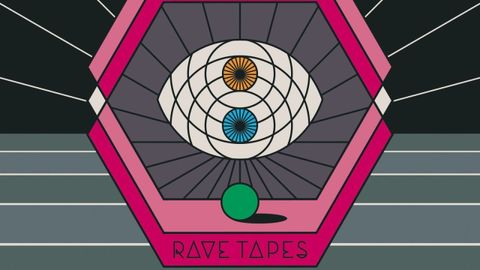When a band has sustained a 19-year career of remarkable consistency and focus, they run the risk of being taken for granted. Such is the case with Glasgow’s Mogwai, who have ploughed their mostly instrumental furrow since 1995, making only the most incremental of adjustments to a distinctive and influential sound. It’s as much a curse as a blessing that, setting personal preference aside, the band have never put out a bad album.
And yet certain developments in such a career can have the effect of reminding the public how good it is to have you around. Last year, Mogwai’s stunning soundtrack for the French TV thriller Les Revenants nudged them back into the limelight and helped to generate anticipation for their next album proper, the brilliant Rave Tapes.
The first half of the album comprises some of the band’s finest compositions to date. Heard About You Last Night is a typically deliberate, mournful piece of mid-paced melancholy, but Simon Ferocious is built around a rolling rhythm and an addictive synth pulse, shifting mood from reflective to defiant, as though the band are steeling themselves against an oncoming storm. Remurdered rides the kind of synthesizer sequence Pittsburgh duo Zombi have made a career from, introducing clipped guitar phrases and an earth-shaking drum pattern along the way.
The piano-assisted Hexon Bogon kicks in with a Bonham-esque rhythm and at two and a half minutes, is over before the listener knows what’s hit them. The Zep theme continues with Repelish, whose lengthy sample of one Reverend Lee Cohen discussing the subliminal Satanism of Stairway To Heaven both amuses and unnerves.
Initial listens suggest the album settles into a comfortable stride midway through. In fact, the likes of Master Card, Deesh and The Lord Is Out Of Control are simply less instant in their appeal, and take a little longer to lodge themselves in the consciousness (the exception to this is the vocal-led, almost hymnal Blues Hour). Here we observe a pattern common to all of Mogwai’s releases: a handful of tracks immediately grab the ear, giving the impression that the remainder are merely business as usual. It’s only through repeated exposure that the full picture becomes visible.
Mogwai should be commended for maintaining a tight grip on their sonic identity. Their insistence on subtle evolution continues to serve them well, and their attention to detail – audible, for example, in the variety of drum sounds used across these 10 tracks – should not be underestimated nor undervalued. Rave on.

